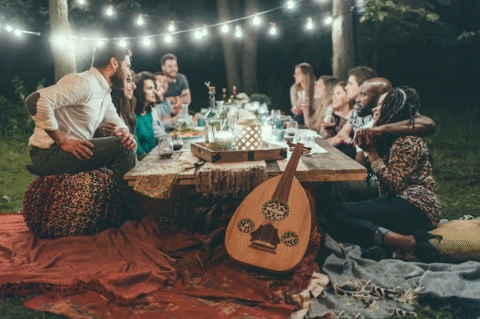Have you ever noticed how time seems to fly when you’re deeply focused on something you love?
Whether it’s painting, gardening, or playing an instrument, these activities don’t just fill your day-they keep your mind sharp. For many older adults, creative hobbies are more than simple pastimes; they’re a way to stay mentally active, happy, and connected.
This article explores how creativity boosts brain power and highlights fun ways to stay mentally agile through hands-on hobbies.
Art and Painting
Art is a great way to express feelings and keep your mind busy. When seniors paint or draw, they use parts of the brain that handle focus and problem-solving. Mixing colors, planning designs, and creating pictures helps improve memory and coordination.
You don’t have to be an artist to enjoy painting. Simple projects like coloring books or watercolors can calm the mind and lift your mood. Art also builds confidence and gives a wonderful sense of accomplishment.
Music and Learning Instruments
Music has a special power to improve memory and focus. Listening to your favorite songs or learning an instrument can make you feel more alert and relaxed. The rhythm of music also helps improve coordination and emotional health.
Learning to play guitar, piano, or even singing in a group keeps the brain active. Many seniors find joy in joining choirs or music clubs where they can meet new friends and share the fun. Music is one of the easiest ways to keep your brain young.
Puzzles and Brain Games
Puzzles are excellent brain boosters. They help with problem-solving, logic, and attention to detail. Doing crosswords, Sudoku, or jigsaw puzzles gives the mind a gentle but effective workout.
Even playing online games that test memory and focus can be helpful. Seniors who solve puzzles daily often notice better concentration and clearer thinking. A few minutes a day can make a big difference for mental sharpness.
Crafting and DIY Projects
Crafting is both relaxing and rewarding. Activities like knitting, woodworking, or making jewelry use creativity and focus at the same time. Working with your hands helps improve fine motor skills and keeps the brain alert.
Crafting can also be social. Many senior centers and independent living communities offer art or craft classes. For ideas on the best hobbies for seniors, check out creative programs that bring people together and support lifelong learning.
Writing and Storytelling
Writing helps organize thoughts and strengthens memory. Whether it’s journaling, poetry, or short stories, writing allows seniors to express emotions and reflect on life experiences.
Sharing stories is also a wonderful way to connect with others. Telling family stories or writing a personal memoir keeps memories alive while giving the brain a healthy workout. Writing can be both comforting and inspiring.
Keep Growing Keep Creating
Creative hobbies aren’t just fun-they’re essential for maintaining brain health and happiness. They help seniors stay engaged, discover new passions, and connect with others in meaningful ways.
Whether through music, puzzles, or crafts, there’s always a creative outlet waiting to inspire the mind.
Disclaimer: This article is for general information only. It is not medical advice. Everyone is different, and what works for one person may not work for another. If you have any health concerns or medical conditions, please talk to your doctor before starting new activities or hobbies.





